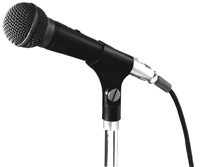Libraries at University of Nebraska-Lincoln

University of Nebraska-Lincoln Libraries: Presentations
Date of this Version
November 2006
Document Type
Article
Abstract
Willa Cather's work as a journalist, writing for mostly Lincoln and Pittsburgh newspapers when she was in her twenties, is a remarkable and wide-ranging body of work that offers significant insights into major critical questions about Cather and American literary and cultural history. Since her writings were largely critical responses to theatrical productions, books, and music, the articles provide a detailed and rich record of her emerging aesthetic sensibilities during this crucial period of development. Additionally, since she covered such a wide variety of performances, companies, and works, her journalism offers a detailed view of the culture of the 1890s and early 1900s. In responding critically to so much material, she had opportunity to comment on a wide range of topics, providing relevant and compelling texts that can inform many dominant approaches to Cather's work and to literary study generally, including issues of gender, sexuality, race, class, the marketplace, performativity, biography, aesthetics, and cultural studies. And yet, at this moment, no complete edition of this writing exists in an acceptable, scholarly edited form. If readers want to access Cather's journalism, they either have to consult the highly selective volumes by Bernice Slote and William Curtin from the mid-1960s, The Kingdom of Art and The World and the Parish, respectively, or they have to wind their way through reel after reel of microfilm.
To address that need, the Cather Project and the Center for Digital Research in the Humanities at UNL have partnered to collect, edit, and publish, for the first time, the complete journalistic writings of Willa Cather. We are creating an edition of Willa Cather's journalism that will provide a model for editions of other authors, demonstrating to scholars the unprecedented access and comprehensibility that a digital scholarly edition can provide. Led by Kari Ronning, Assistant Editor of the Willa Cather Scholarly Edition, and myself, the project will locate previously unidentified writing by Cather; transcribe Cather’s work from microfilm and/or original paper copies of the periodicals; richly encode the transcriptions in eXtensible Mark-up Language (XML) according to the Text Encoding Initiative’s document type definition (the standard for digital scholarly editions); capture high-quality digital page images of Cather’s work from the original publication when available; research and write annotations of Cather’s references to people, places, events, and culture; provide an introduction placing the journalism in relation to the historical period and to Cather’s mature work; develop a sophisticated user interface that allows for searching, sorting, and browsing the entire corpus of articles; work with catalogers to create full records for integration into local and international library catalogs; and publish the edition digitally on the free, educational website, the Willa Cather Archive.


Comments
Paper delivered to the Midwest Modern Language Association, November 10, 2006. Copyright 2006 Andrew Jewell.